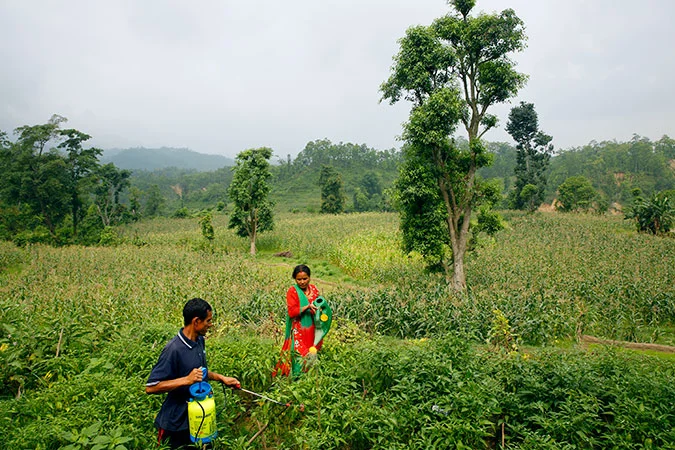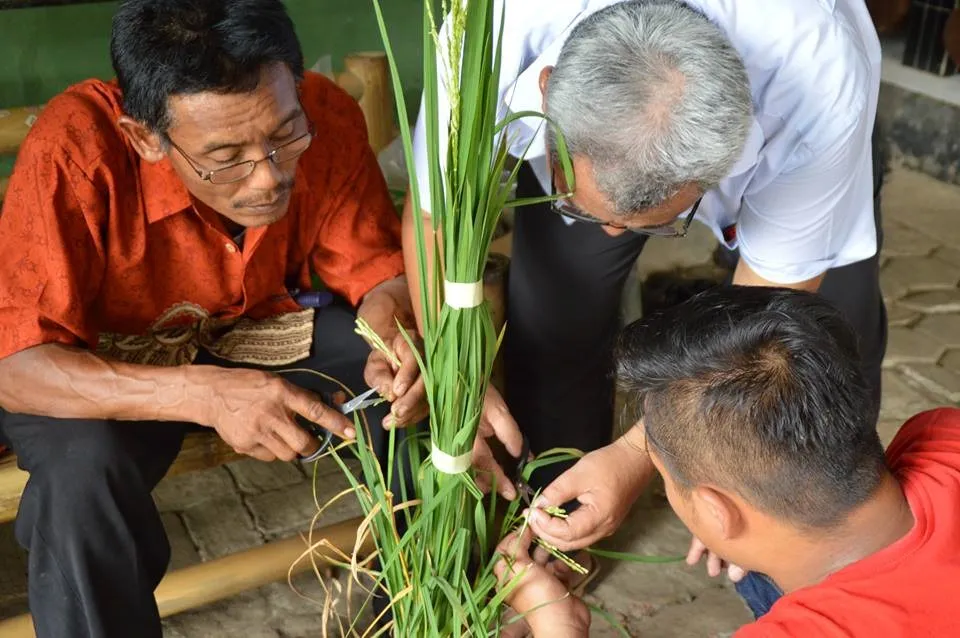
Tackling Hidden Dangers of Pesticides in Nepal’s Radio Prakriti
In Radio Prakriti FM’s program titled Problems and Issues: Pesticides, Insecticide Management Act 2076, the problems and issues in pesticides and insecticides management in Nepal were discussed together with their special guests, Manoj Pokhrel, an agriculture specialist; Rudramani Pokhrel from Agriculture Knowledge Center, and Amrit B.K., an agriculture technician.
Pesticide and Insecticide Management Act 2076 of Nepal
The Pesticides and Insecticides Management Act of 2076 is discussed as the program covers the many kinds of pesticides and their applications. They highlight the damage pesticides do to agriculture, soil, the environment, and public health. Amrit also emphasizes the knowledge gap of the farmers about the proper application of pesticides and the impacts that chemicals can have both directly and indirectly.
In order to guarantee safe agricultural practices, Nepal’s Pesticide and Insecticide Management Act 2076 seeks to control the manufacture, import, sale, distribution, and use of pesticides inside the country. This act specifies procedures for handling pesticides that are out-of-date or prohibited, registering biopesticides, and enforcing fines and jail terms for infractions.
Harmful Effects of Pesticides
Moreover, studies also have shown that many farmers lack proper knowledge and training on the safe use of pesticides, leading to acute health problems. For instance, a study in the Chitwan district in Nepal revealed that 18.7% of farmers experienced acute symptoms of pesticide poisoning, including headaches, dizziness, and skin problems. The misuse and overuse of these chemicals can also lead to chronic health issues, such as respiratory problems and cancer, due to prolonged exposure.
Rudramani Pokrel, one of the special guests, emphasizes that the environmental impact of pesticide use in Nepal is alarming. The overuse of pesticides has seriously contaminated soil and water supplies, especially in areas used for commercial farming.
In mitigating the problem,the Nepal Government can strengthen regulatory frameworks to ensure proper monitoring and control of pesticide use. This involves outlawing very dangerous compounds and enforcing maximum residue limits, or MRLs.
Furthermore, during discussions in the radio program, farmers require thorough guidance and training on the proper handling, application, and disposal of pesticides. One way to lessen reliance on chemical pesticides is to encourage organic farming and integrated pest management (IPM) techniques.
Addressing and preventing health risks associated with pesticides can be achieved in part by establishing easily accessible health monitoring systems for farmers and carrying out routine health examinations. For these measures to be implemented successfully, cooperation between governmental entities, agricultural institutions, and non-governmental organizations (NGOs) is essential.
References:
Atreya, K.,Kattel, K., Pandit, S., et al.(2022). Understanding farmers’ knowledge, attitudes and practices of pesticide use in Nepal: synthesis of a systematic literature review. Retrieved from https://journals.aesacademy.org/index.php/aaes/article/view/07-02-018
Budhathoki, S.(2023). Pesticides causing public health crisis. Retrieved from https://cijnepal.org.np/pesticides-causing-public-health-crisis/
Nyaupane, S.(2021). Use of Insecticides in Nepal, Its Impact and Alternatives of Insecticides for Nepalese Farmers. Retrieved from https://www.intechopen.com/chapters/79363
Strengthening pesticide management in agriculture in Nepal.(2017). FAO. Retrieved from https://www.fao.org/partnerships/resource-partners/investing-for-results/news-article/en/c/1062477/
Vaidya, A.,Kafle, S., Pradhan, B., et al.(2021). Factors Associated with Practice of Chemical Pesticide Use and Acute Poisoning Experienced by Farmers in Chitwan District, Nepal. Retrieved from https://www.mdpi.com/1660-4601/18/8/4194
Article contributed by Thesa Elaine Mallo, ComdevAsia/CCComdev Intern



